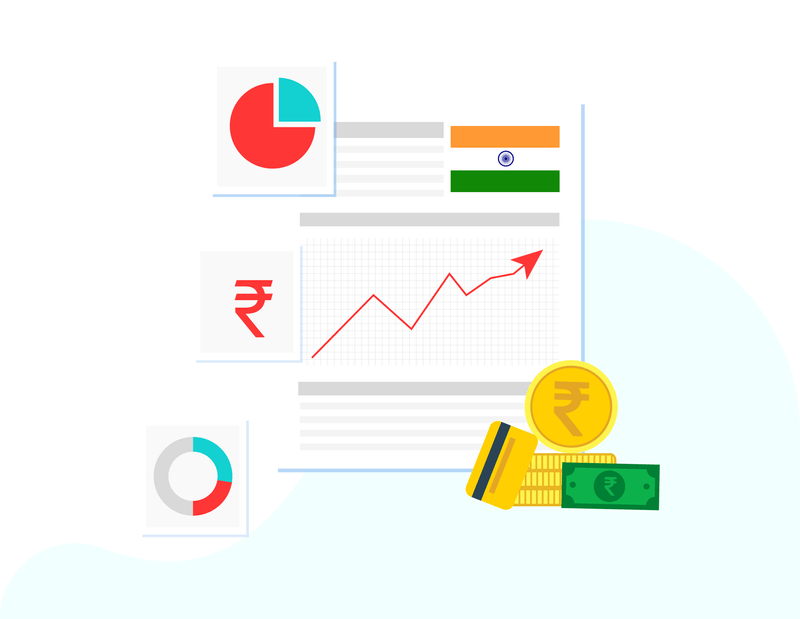AUTHOR : ADINA XAVIER
DATE : 20/09/2023
In today’s digital age, payment channels[1] have witnessed a transformative evolution[2]. With the emergence of numerous options, understanding and choosing the right payment[3] channel can be daunting. This article aims to provide you with a detailed insight into the diverse payment channels[4] available in India, making your financial transactions[5] more convenient and secure.
Introduction to Payment Channels
Payment channels are the mediums through which individuals and businesses transfer money from one party to another. These channels play a pivotal role in the financial ecosystem by facilitating transactions, both large and small. In India, the payment landscape has experienced significant changes over the years, transitioning from traditional methods to digital solutions.
India’s payment history is rich and diverse, spanning from the use of barter systems in ancient times to the introduction of paper currency during the British colonial era. Over the past few decades, technological advancements have given rise to innovative payment solutions, revolutionizing the way transactions are conducted.

Traditional Payment Channels In India
Cash Transactions
Cash transactions have been the cornerstone of payments in India for centuries. While digital payments[1] are on the rise, cash still holds a prominent place, especially in rural areas.
Cheques and Demand Drafts
Cheques and demand drafts are paper-based payment instruments widely used for business transactions, offering a secure also traceable payment method.
Bank Transfers
Bank transfers involve moving funds from one bank account to another. This method is reliable for both personal and corporate transactions[2].
Digital Payment Channels In India
Debit and Credit Cards
Debit and credit cards have become ubiquitous in India, providing a convenient way to make payments both online also offline.
Mobile Wallets
Mobile wallets[3] are smartphone applications that allow users to store money digitally and make payments through their mobile devices.
Unified Payments Interface (UPI)
UPI is a revolutionary payment system that enables instant money transfers between bank accounts using a mobile phone and the internet.
E-Wallets: The Game Changer
In recent years, e-wallets have gained immense popularity in India due to their ease of use and accessibility.
Popular E-Wallets in India
E-wallets like Paytm, Google Pay, and PhonePe have become household names, offering a wide range of services beyond just payments.
Benefits and Drawbacks
While e-wallets offer convenience, users must be cautious of security risks, such as phishing attacks and fraud.

Online Banking: A Secure Choice
Internet banking[4] has become an integral part of modern banking, offering a secure and efficient way to manage finances.
Internet Banking Services
Online banking provides features like fund transfers, bill payments, and account management, all accessible from the comfort of your home.
Security Measures
Banks employ robust security measures, including two-factor authentication and encryption, to safeguard online transactions.
UPI: The Future of Digital Payments
Unified Payments Interface (UPI)[5] has emerged as a game-changer in the Indian payments landscape.
How UPI Works
UPI allows users to link their bank accounts to a mobile application and make seamless transactions by just using a virtual payment address.
Advantages for Consumers and Businesses
UPI benefits consumers with hassle-free transactions and offers businesses a cost-effective and secure payment solution.
Retail Payment Systems
National Electronic Funds Transfer (NEFT)
NEFT is a popular method for transferring funds between banks on a deferred net settlement basis.
Real-Time Gross Settlement (RTGS)
RTGS is used for high-value, time-sensitive transactions, ensuring swift and secure money transfers.
Digital Transformation in the Retail Sector
The retail sector has witnessed a significant digital transformation in the way payments are processed.
Contactless Payments
Contactless payments, using NFC technology, have gained momentum, offering a safer and more convenient shopping experience.
QR Code Payments
QR code payments have become prevalent in retail, enabling customers to make payments with a simple scan.
Payment Gateways for E-Commerce
E-commerce websites rely on payment gateways to facilitate online transactions.

Simplifying Online Transactions
Payment gateways provide a seamless checkout experience for customers, increasing conversion rates for businesses.
Ensuring Payment Security
Security measures such as encryption and fraud detection systems are crucial in safeguarding online transactions.
Challenges and Security Concerns
As digital payments surge, several challenges and security concerns have arisen.
Data Privacy Issues
Protecting personal also financial data is paramount to prevent identity theft and data breaches.
Cybersecurity Threats
With the increasing use of digital channels, cybersecurity threats, such as phishing and malware attacks, have become more sophisticated.
RBI Guidelines
The Reserve Bank of India (RBI) has issued guidelines and regulations to ensure the safety and security of digital transactions also.
Future Trends in Payment Channels
The future of payment channels in India promises even more innovation and convenience.

Conclusion
In conclusion, payment channels in India have come a long way from traditional methods to cutting-edge digital solutions. Embracing these advancements ensures both convenience and security in your financial transactions. As the landscape continues to evolve, staying informed and making informed choices will be key.
FAQs
- Are digital payment channels safe to use?
- Yes, digital payment channels implement robust security measures to protect your transactions and personal information.
- How can I choose the right payment channel for my business?
- Consider your business needs, customer preferences, and the nature of your transactions when selecting a payment channel.
- What are the advantages of contactless payments?
- Contactless payments offer speed, convenience, and enhanced security, making them a popular choice for both consumers and merchants.
- Is the use of cryptocurrencies legal in India?
- The legal status of cryptocurrencies in India is evolving, and it’s essential to stay updated on regulations in this regard.






